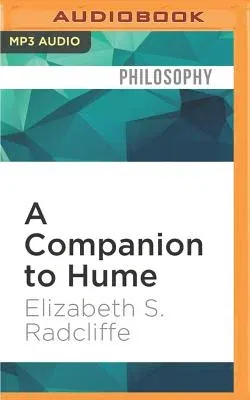David Hume's revolutionary philosophies took an empirical approach to
the study of human nature. Controversial in his time, he was accused of
everything from atheism to moral corruption; he has since been
recognized as one of the foremost thinkers of the late modern period,
influencing the thought of nearly every philosopher in his wake. The
arguments presented in his writings have survived three centuries of
varying perspectives, and have had a lasting influence on the philosophy
of mind, knowledge, religion, action, morality, economics, and politics.
A Companion to Hume is the ideal resource for the study of one of
history's most remarkable thinkers, demonstrating the range of Hume's
work and illuminating the ongoing debates that they have generated.
Comprised of twenty-nine expertly commissioned essays addressing such
expansive topics of knowledge, passion, morality, religion, economics,
and politics, this collection examines the paradoxes of Hume's thought
and his legacy, covering the methods, themes, and consequences of his
contributions to philosophy.
Elizabeth S. Radcliffe is Professor of Philosophy at The College of
William and Mary. She has published on the British Moralists and on
Hume's metaethics and motivational psychology. She was co-editor of the
journal Hume Studies, with Kenneth Winkler, from 2000 until 2005. She is
currently working on issues surrounding the contemporary Humean theory
of motivation and its connection to Hume.

